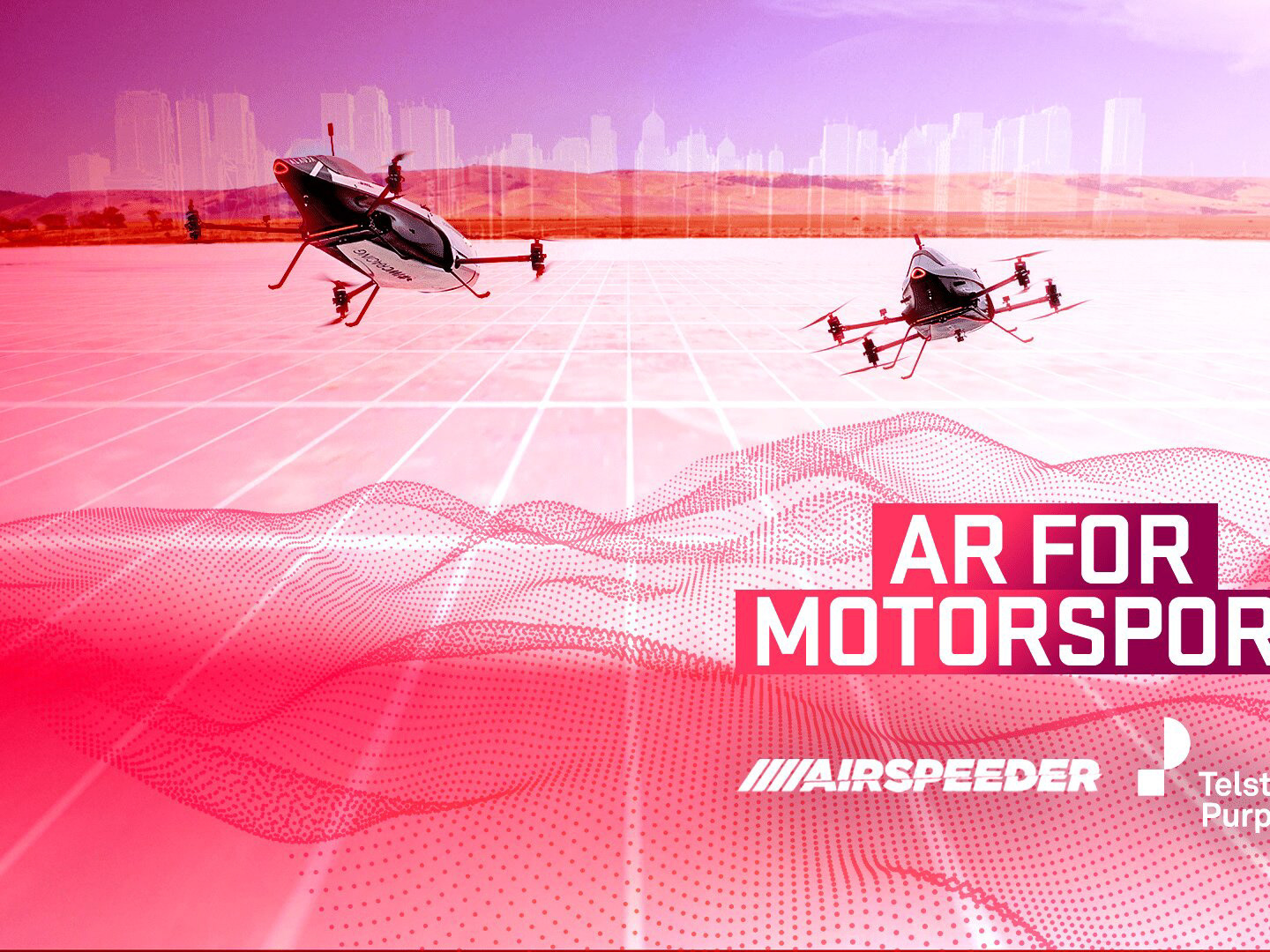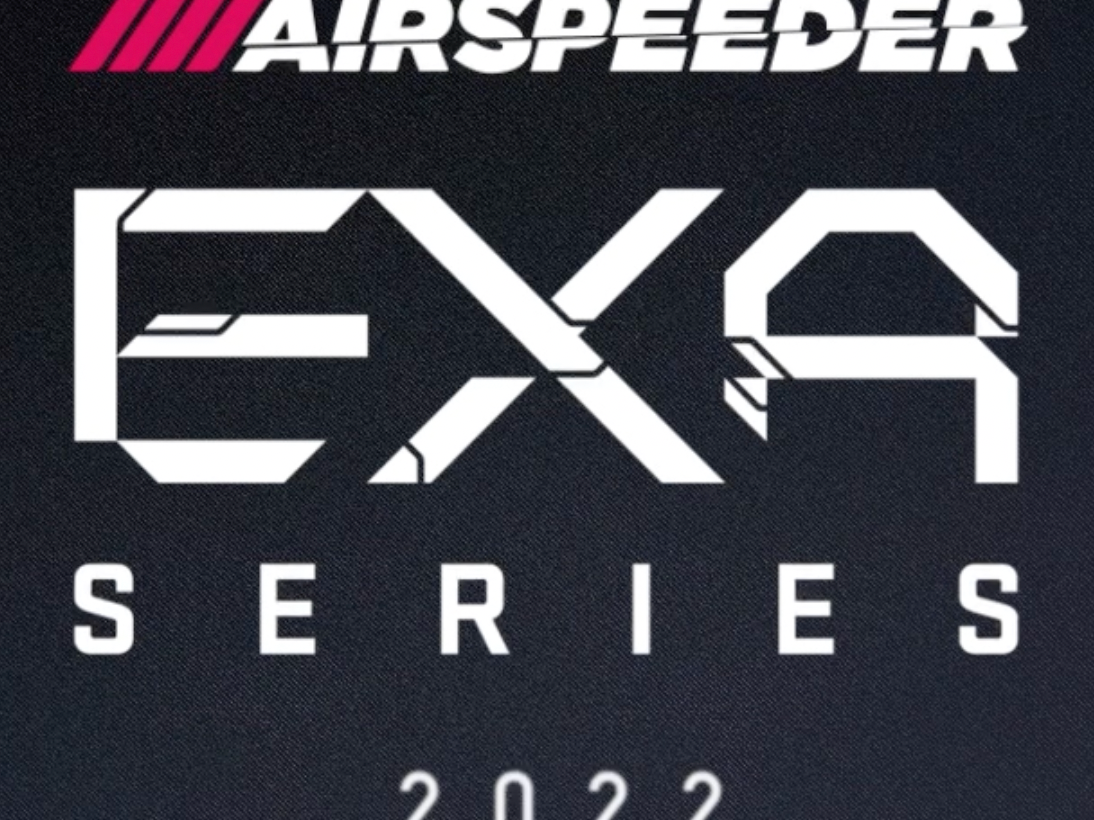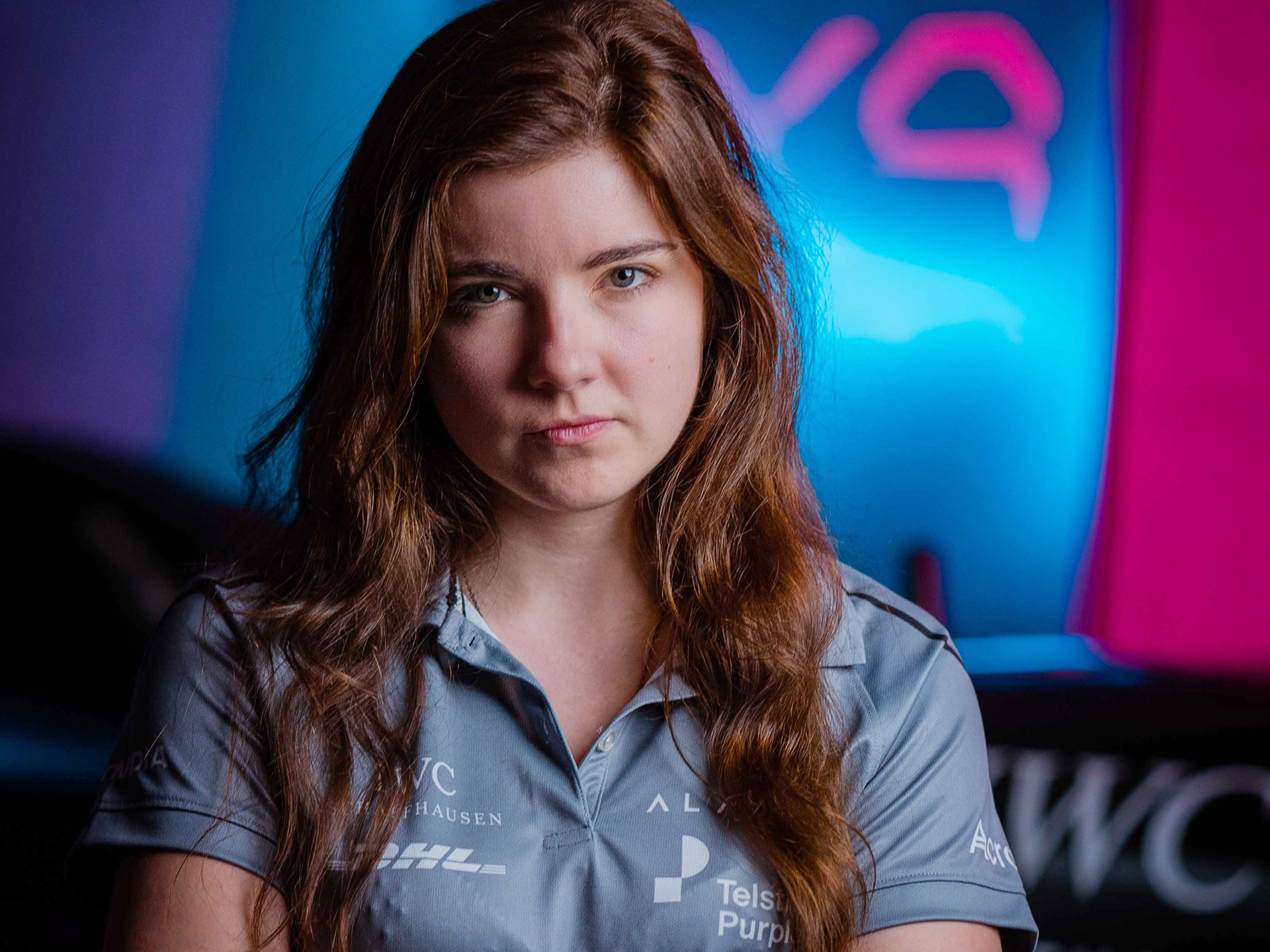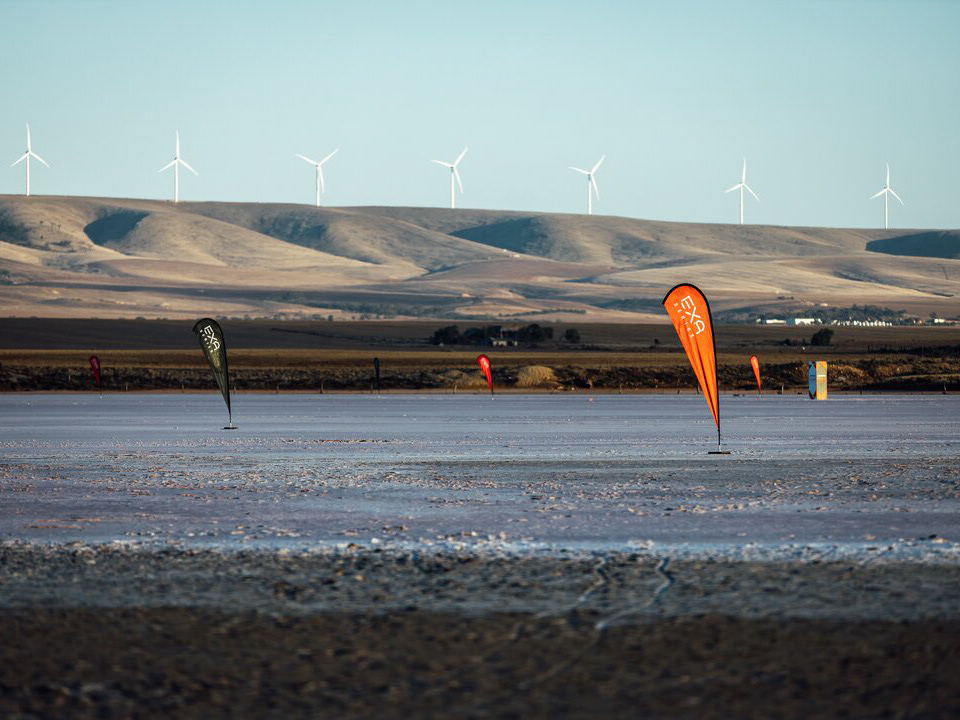AIRSPEEDER //// EXA SERIES //// WORLD'S FIRST eVTOL DRAG RACE
IMAGE BY - VINAYAK HEGDE FOR AIRSPEEDER.
In Airspeeder’s first-ever EXA Series pre-season test race - known as the EXA Drag Race - two remotely-flown Alauda Aeronautics Mk3 Speeders are pitched in a battle of pure speed down a 300m drag strip.
A landmark moment in the future of motorsport played out in the deserts of South Australia in November 2021 as a pre-season test concluded with the first ever timed electric flying car drag-race. The 300 metre dash provided a first glimpse of flying car racing as a sport but also represented the culmination of intense internal competition between two sides of the Alauda Aeronautics engineering team: Alpha and Bravo.
Armed with Alauda Mk3 Speeders, the two teams flew at over 100 km/h just 10m above the ground. The red and black Speeder of Team Bravo crossed the line 3.2 seconds quicker than its black and silver rival of Team Alpha.
Watch the 'Exa Drag Race' video here.
For the first time, remote pilots were able to show the dynamic potential of the world’s first electric flying racing cars. The remote pilots were given free rein to plot their own flight path to victory. The drag race format was chosen as a pure demonstration of the performance and safety technologies that underpin the sport.
In particular, the ‘Virtual Forcefield’ suite of LiDAR and RADAR powered safety systems that deliver close but ultimately safe racing. This will be heavily relied upon for full-grid circuit racing in the forthcoming EXA Series remotely-piloted Grand Prix Season, the development series for the crewed Airspeeder Racing series that is set to take place in soon-to-be-unveiled locations in 2022 and beyond.
"THIS FIRST TEST DRAG RACE IS A MAJOR MOMENT
IN THE CREATION OF OUR SPORT AND A GIANT LEAP FORWARD FOR
THE DEVELOPMENT OF ELECTRIC FLYING CARS."
MATT PEARSON, CEO, ALAUDA & AIRSPEEDER.
To understand how we made EXA Drag Race happen, check out our two-part series Journey to Drag Race below.
Race events in 2022 will see Speeders race blade-to-blade in landscapes where motorsport has never been before because flying car racing does not require the same physical infrastructure as legacy motorsport. This presents a sport built from the ground-up with sensitivity to the global requirement to race with minimal ecological impact.
Teams from a broad range of industries will be provided with the Speeders but given technical and tactical freedom to approach gaining a competitive edge in the series as they see fit. This will ensure the rapid acceleration of development in the Alauda race-craft – which will race at up to 300 km/h in full race specification – and ultimately across the wider eVTOL industry.









